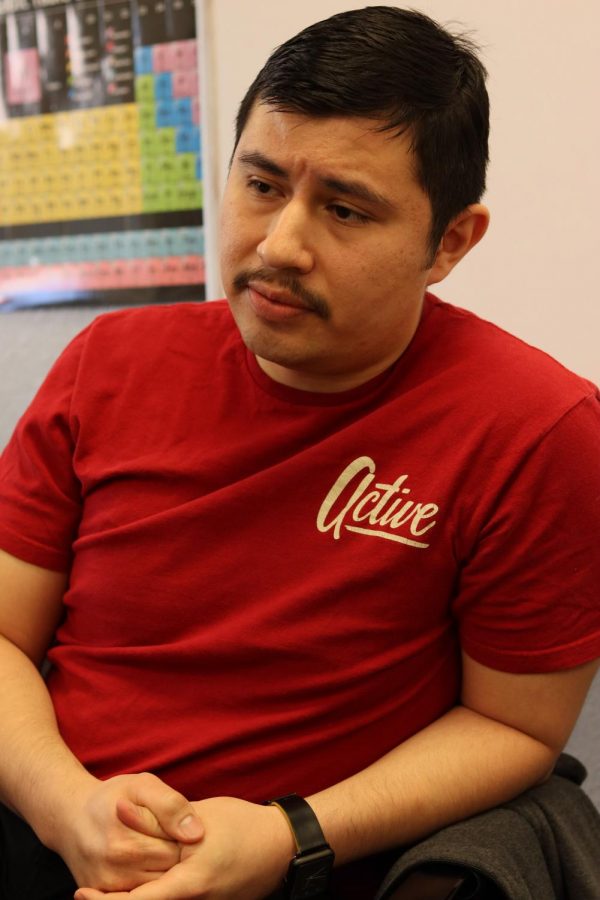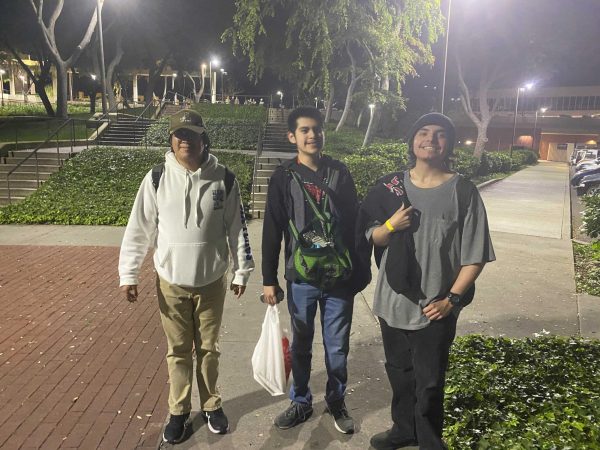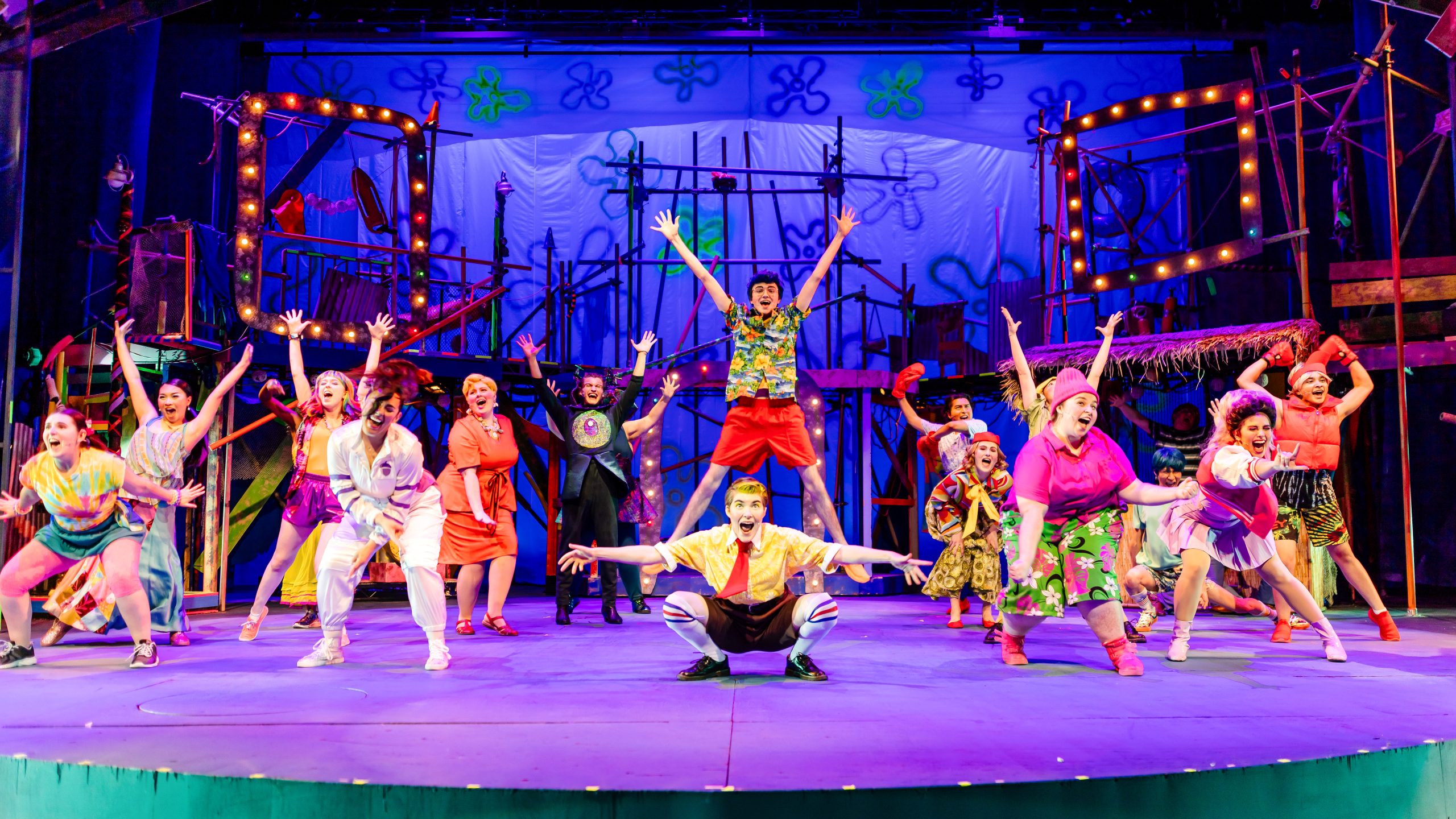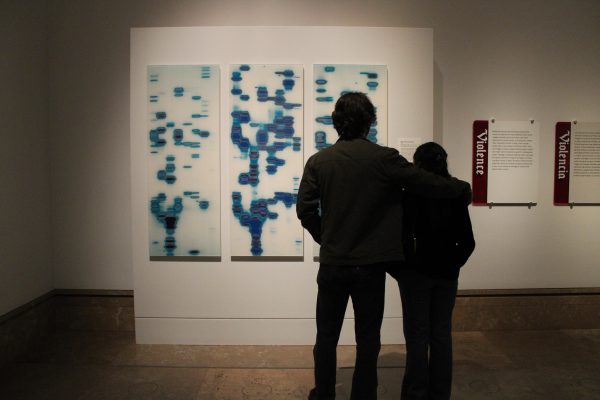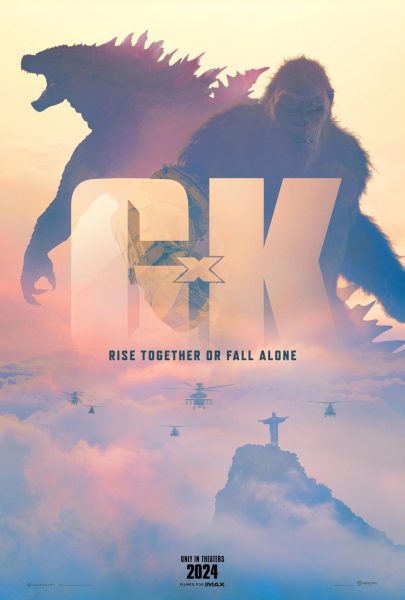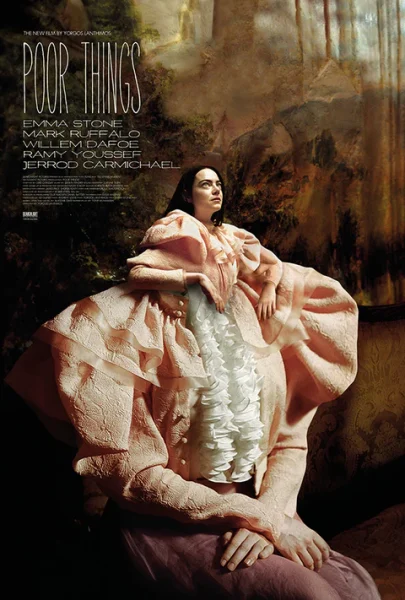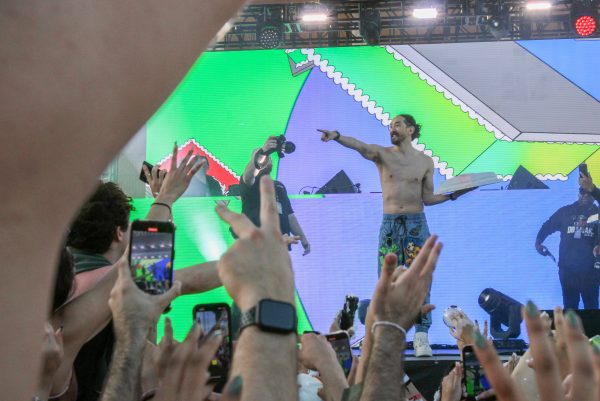Military culture in the Trump era
Veteran Robert Palacios talking about his experience in the U.S. Marines.
February 20, 2020
When a high school student decides to enlist in the Army, they may think of the stigmas attached to participating in the armed forces, but it probably won’t deter their decision. From a liberal political perspective, military personnel have the reputation of supporting a system of imperialism that asserts U.S. power all over the world. But a conservative view challenges this perspective rather than honoring its cadets for the patriotic service they are doing in defending their country. In this contradictory position, men and women from all backgrounds still choose to enlist. When it comes to recruiting, the armed forces don’t seem to discriminate.
But once many of the young 18-year-old high school graduates are stripped of their civilian mentality, a military culture is instilled, which also holds and reinforces certain values and opinions that fall on the conservative side of the spectrum.
As a result, when veterans decide to go to a college like CSUN, they find themselves discussing political issues from opposing perspectives. Due to an agitating cabinet in office that also influences the views of military culture, most of the time veterans feel the need to keep their views to themselves.
Robert Palacios has experienced this first hand within the Veteran’s Resource Center on campus as a student veteran himself. He enlisted in the Marines in the summer of 2010 and is now pursuing an undergraduate degree in biochemistry.
“Sometimes we have political discussions in here, at the VRC,” Palacios said. “Many of the grievances within their classes are that they’re afraid to speak up because the few times they’ve expressed their opinions they’ve been shut down. And we may disagree in our political views but I don’t consider them bigots. I would just say we disagree politically.”
In humanities courses, students have always been told that a balanced approach towards any issue will always make for a healthier discussion. But since the 2016 presidential election, there is more of a polarizing stance that refuses to hear anything from the other side, whether it is liberal from conservative or vice-versa. These conversations are difficult to have in a classroom setting, and if it becomes too difficult to speak about without students agitating one another, it is then avoided, which won’t help the issue either.
Palacios also clarified that his political views don’t reflect all of the views of veterans.
“I’ve actually found that many of my fellow veterans are more right-winged,” he explained.
But part of the military culture that Palacios experienced, which included obeying orders, respecting his superiors, arriving 15 minutes prior to his expected post, etc., is the code of values that honors commaredery. When facing a greater threat, Marines must be able to work effectively together in order to complete a mission.
“I would say that even the Marines that I felt I was in bad terms with, I still would take a bullet for them,” Palacios said, and he also felt confident that other Marines would do the same, separating their personal issues from their duty as soldiers.
In his time with the Marines, Palacios experienced prejudices from officers of higher ranks or other fellow Marines. However, he says this was done in the context of teasing.
“When I went to bootcamp I was the first Mexican they’d ever seen,” Palacios explained. “You get people from all over rural America and diversity is not something they’re accustomed to. There was a sergeant that was speaking negatively about Latinos in general. In the military, they’re very insensitive and most of it is said while just ‘talking shit’ but there were few times when they used it purposely to insult. But it’s definitely there. You kind of just learn to deal with it.”
A trait of the military culture is that sergeants and higher officials are always humiliating or diminishing the younger recruits’ ego.
This is an image we are very familiar with, seen in iconic characters in films like “Full Metal Jacket” with character Sergeant Hartmann or Colonel Jessup in “A Few Good Men.”
Similarly, Nathan Wright, a veteran student at CSUN majoring in computer information systems, experienced the Army’s harsh discipline along with other traits of military culture. In 2016, Wright was deployed to Afghanistan to aid African troops against the Taliban. There, he noticed how fellow soldiers would make fun of other African soldiers because of a lack of education.
Wright joined the military following the steps of his father and grandfather, who were enlisted during World War II and the Vietnam War. In these wars, there were troops of all ethnic backgrounds, too, but its diverse historical figures are rarely highlighted.
David Lopez, sociology professor at CSUN, added the narrative of Latinos’ involvement in all of the American wars from the 20th century and even dating back to the times of the American Civil War. His essay, “Saving Private Aztlan,” says the same about Latinos during the Vietnam War.
“Many questioned why so many men of color, who occupied the lowest socioeconomic strata of our society, were experiencing disproportionate casualty rates,” Lopez said in the essay. “During the war, more Latinos served than any other ethnic group and servicemen of Mexican descent had the highest death rate, twice that of Non-Latino White servicemen.”
The military historically has recruited people of different ethnicities.
“The Marine corps has a big percentage of Latinos, a lot of people that looked like me,” Palacios said. And this has been true historically. Lopez’s article also mentions that Navajo Marines were able to send messages in their own language that the Japanese couldn’t translate. In theory, the military’s embrace of a diverse racial background would benefit the military’s capabilities to deal with local and international groups of people. As a factor of a changing culture, in the last couple of decades the military’s recruitment of different ethnicities has increased.
Palacios’ parents emigrated from Mexico and El Salvador, and his father left when the country was going through a civil war. Under Ronald Reagan’s presidency, the U.S. aided the Salvadoran military economically and played a key role in the deaths of more than 75,000 people. As a result, Palacios’s father had a negative view of the American military.
“All through when I was growing up he would tell my brother and I, ‘Don’t join the military,’ and so here I am, 17 years old, needing his permission,” Palacios said.
But as soon as they sat with Palacios’ military recruiter, who happened to speak Spanish and was of a Mexican background, they began feeling more at ease. Palacios’s father supported his son, in the end, as long as he was sure of his decision.
Palacios joined after considering he was undisciplined and needed more guidance, knowing that most likely if he would have gone to college right after high school it would’ve gone wrong. So, the military seemed like a solid, viable path.
“Once I got in the military, my dad couldn’t be prouder,” Palacios said. His father also voted Republican in 2016 as an individual favoring evangelical values, which the military also shows. Palacios then graduated from boot camp, went through Marine Combat Training, and then to military occupational school, and finally stationed in a permanent unit where he was a communication technician.
“When you enlist in the army you are a reflection of the American population,” Palacios said.
In recent years, the U.S. has grown more ethnically diverse. But despite the large numbers of military personnel that identify as “Hispanic,” very few actually reach higher ranks, as The Hill reported after analyzing the results of Casaba Group, a Hispanic Veterans organization.
“I don’t think that (insensitivity in the Marines) made my job more difficult because of it. But we definitely did have black Marines that did feel uncomfortable in certain situations,” Palacios said. He expressed a similar opinion in regards to female Marines that even high officials were aware of the stereotypes attached to them by default: “They were (considered) either sluts, lesbians or weak.” Because of this, Palacios was very aware that other fellow veterans certainly have a different opinion about their experience in the military, which may not be as positive.
In the military culture, these comments are an extension of discipline and just teasing, something that a civilian with more liberal views may disagree with. So, are there any consequences from having such a culture in place?
The Trump administration has made it harder for undocumented people to expedite their path to citizenship, and putting many halts in the screening process before starting boot camp, thus de-incentivizing many potential marines and infantry men from enlisting. At the same time, the case of Russian immigrant, Lt. Col. Alexander Vindman, brings to light how immigrants’ patriotism is questioned, especially if they are from a country the U.S. has political or military involvement in. With the interference in the Middle East, it is then likely to discourage American Muslims from joining the military, let alone reach higher-ranking positions.
Also, the political discourse on gun control is one that divides people, although there are veterans for both sides. In 2018, following the mass school shootings, many veterans supported regulation with an online presence under the hashtag #vetsforgunreform. Both Wright and Palacios stand in favor of second amendment rights, after being in an environment that promotes the use of a firearm for the purpose of safety. This of course is met with a strong opposition that looks to have much more strict gun control laws and banning some weapons entirely.
While Palacios and Wright have adjusted back to civilian life, they bring their perspective to the table and all veterans alike hold the same right to express their opinion. However, when a civilian who doesn’t have a military background and a veteran have a discussion, these opinions are almost always polarizing.
When discussing something in a classroom, ideologies are at stake. Opposing views from military and civilians are bound to continue and further exacerbate issues if the Trump administration were to stay in place for another presidential term. Military culture influences political discourse and it’s becoming more clear that, because of it, the military is distinct and separate from a significant number of people they are meant to protect.
